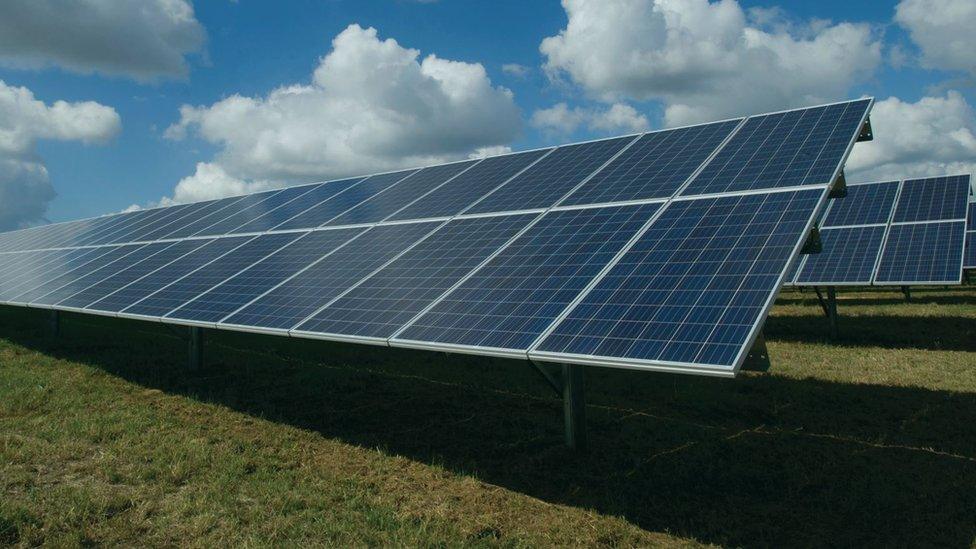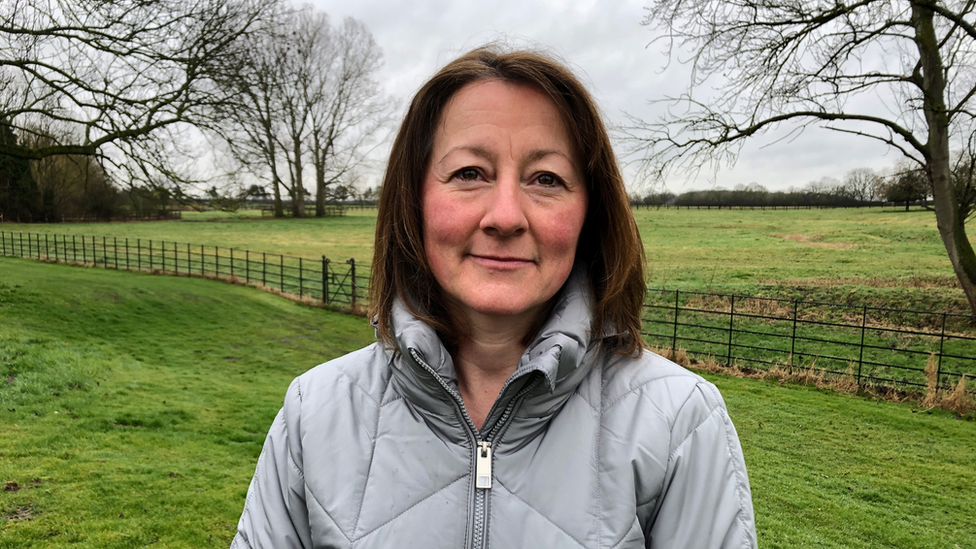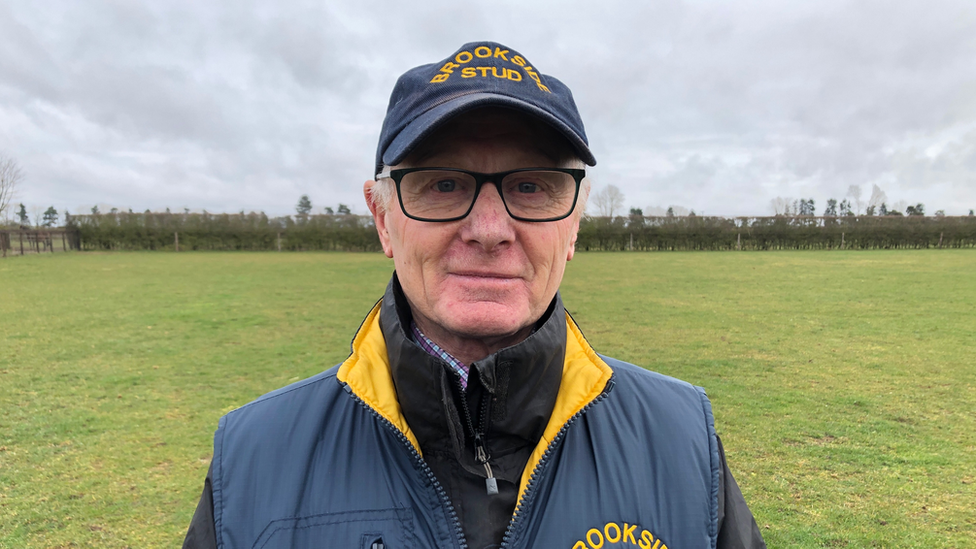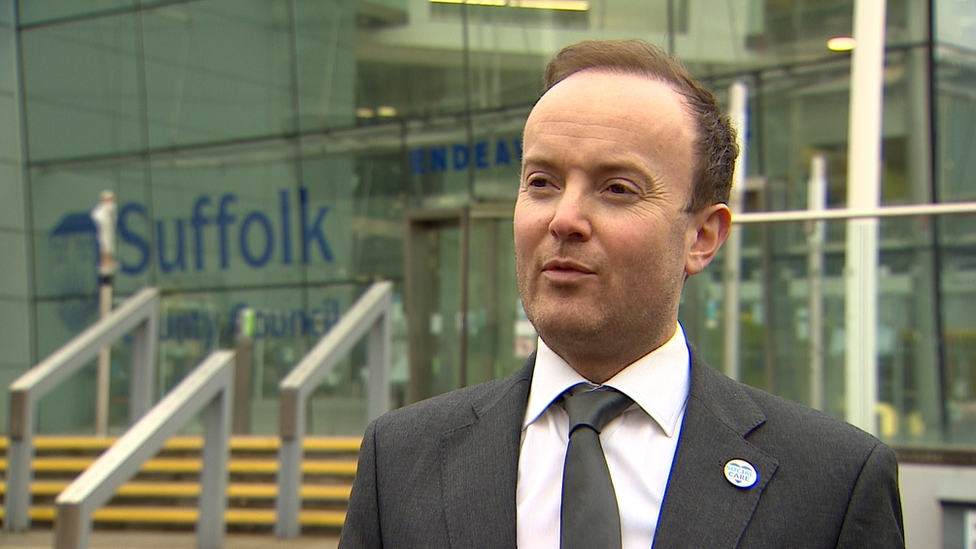Giant Suffolk solar farm plan is substandard says council
- Published

Sunnica wants to create a giant solar energy farm on land spanning the Suffolk-Cambridgeshire border
An application to build a giant solar farm has been described as "substandard" by a council.
Energy firm Sunnica wants to build the project which would span 1,130 hectares (2,792 acres) around several villages in Suffolk and Cambridgeshire.
But Suffolk County Council said it would "permanently change a really unique setting".
Sunnica said the solar farm would help contribute to government's target of net zero by 2050.
The affected villages are Mildenhall, Freckenham, Worlington, Barton Mills and Red Lodge in Suffolk, and Chippenham, Snailwell, Fordham and Burwell in Cambridgeshire.
Several villagers and local groups are opposed to the solar farm.

Dr Catherine Judkins questions the use of farmland for the project
Dr Catherine Judkins from Say No to Sunnica said the plans would use "highly productive arable farmland".
"It produces potatoes, it produces carrots, it produces wheat, with the current situation in the world it's not just the energy supply that is at risk here, it's a food security issue as well," she said.
John James, from Brookside Stud, near Chippenham, said: "Our biggest concern is the huge size of the batteries, it's 45 acres which is bigger than my stud and it's three storeys high.
"The amount of power that will be stored in there, the biggest danger is if one of those erupts the whole thing will go up and we'll go up with it."

Horse owner John James said he was concerned about the size of the project
Conservative councillor Richard Rout from Suffolk County Council said: "The application from Sunnica is substandard on so many levels.
"When these renewable schemes come forward they can't come forward at any costs.
"This is unique landscape shaped by agriculture and horse racing and it's a vast scheme."
The leader of the opposition group of Greens, Liberal Democrats and independents on the county council, Andrew Stringer, said sadly there were many shortcomings to the application, the Local Democracy Report Service said.

Councillor Richard Rout said the application was lacking in sufficient detail
But Sunnica said only 4% of the land it wanted to use was top-grade farmland.
Luke Murray, project director at Sunnica, said: "This is about an existential threat to our species which is climate change and there is nothing more important than achieving the targets our government has set for net zero in 2050 - and this is a significant contribution toward achieving those targets."
The Planning Inspectorate is expected to begin examining the project later this year and then make a recommendation to the Secretary of State for Business, Energy and Industrial Strategy.
The Secretary of State is expected to make a decision in early 2023.

Find BBC News: East of England on Facebook, external, Instagram, external and Twitter, external. If you have a story suggestion email eastofenglandnews@bbc.co.uk
- Published5 November 2020

- Published27 June 2019
